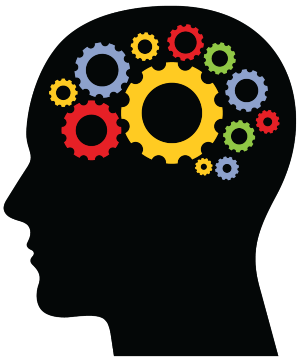About Us
Hi and welcome to Dyslexic Together.
My name is Scott Cumming. I’m 60 years old. Through my life I’ve managed a successful print shop business, as well as worked as an operator and repairer of complex machinery. But I struggled with a secret: I could never read or spell as well as my friends or co-workers. What seemed like second nature for them was torturous for me.
This website is a resource for all things dyslexia, with a special focus on adult dyslexia. Adult Dyslexics are often undiagnosed or misdiagnosed and go through life wondering why they struggle with learning mechanisms that most people master with ease. Today, Early Childhood Educators are trained on what to watch for, so many dyslexics are now diagnosed at an early age. But many are not, growing into adulthood not knowing the learning skills and techniques they will need to help them navigate the world. Often with adult dyslexics, there is a stigma: That instead of having a brain that thinks and learns differently, that they have low intelligence or are simply lazy. This must change. Dyslexia is an inherited condition present in as much as 20% of the world’s population. It has nothing to do with intelligence. It is merely a neurological condition caused by a different wiring of the brain.
It is highly important for teachers and educators to become aware of this condition so they are able to address the issues with their students. When kids do poorly in school because of undiagnosed dyslexia, not only do their grades suffer, but their self-esteem is greatly affected. And when an individual has low self-esteem, this overflows in every aspect of his life, which includes his relationships, his career, and his view of himself. Dyslexic Together is working to help change and break the stigma for both children and adults who suffer from the condition.
Vision & Mission Statement
The mission of this site is to provide a space where sufferers, loved ones of sufferers, and anyone who wants to know more about dyslexia can find information, resources, and the latest news about this condition. If you think you may have adult dyslexia, or you’ve had it all your life but couldn’t really understand what your problem was, then this is the place to give you the information and education you need. Our goal is for people to change their views on dyslexia, and to treat people who suffer from the condition, a little better, and provide them with a little bit of hope and help.
In 2017 I decided to search for why I was this way. I knew because I had been successful in business that it wasn’t that there was anything wrong with my brain. I just didn’t learn the same way or visualize the world in words- like almost everyone else does. What I found changed my life. I discovered that I am Dyslexic.
Dyslexia is very common. Estimates of the percentage of dyslexics in the world’s population range as high as 20%. It impacts women and men equally, and is found in all cultures. Teachers and pediatricians have learned more about the condition and how to diagnose it, so today children are more frequently diagnosed. This has helped more people to start early with strategies that improve their learning ability. But these same strategies can be used by Dyslexics at any age. Knowing you are Dyslexic opens up opportunities to get better at learning and make you happier and more productive.
As soon as I found out I had Dyslexia, I was determined to help as many people as possible. I am especially focused on helping Adult Dyslexics, because I know there are many, many adults like me who were never diagnosed and have struggled through their lives.
The mission of Dyslexic Together is to gather information and resources on Dyslexia and make it easily accessible on a website. We also want this site to be a trusted location where Dyslexics can both communicate and find helpful connections. Finally, we want the site to be a safe haven for Dyslexics to share their stories- their successes, their failures, and how they’ve managed and learned from both.
I wish I had known about my Dyslexia a long time ago. But now that I do know, I will use my time to make a difference in how the world sees Dyslexics. We don’t have a “learning disability”; we have a “learning difference”. Our different way of learning can lead to creative problem-solving and novel ideas that can change the world.
